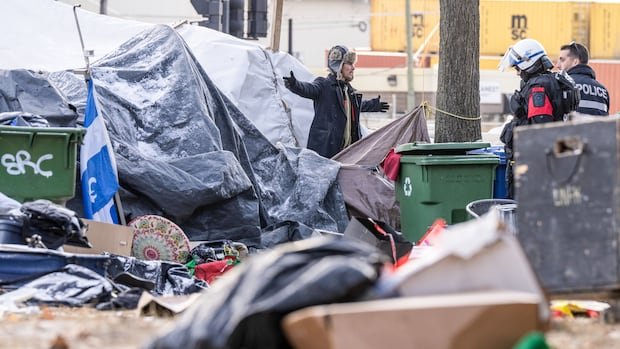With the Montreal municipal election around the corner, the issue of homelessness is becoming a central focus of the campaign. The number of unhoused individuals in Montreal is on the rise, leading to overcrowded shelters and pushing many to seek refuge in makeshift tents under bridges or in public parks.
In the lead-up to the election, Luc Rabouin, the leader of Projet Montréal, has proposed a significant increase in funding for frontline organizations. He has also pledged to introduce modular housing units as part of the city’s efforts to address homelessness, with one such unit already operational at the former Hippodrome site and more in the pipeline. Rabouin announced plans to establish 1,000 housing units, emphasizing the importance of this initiative in providing comprehensive services to those in need.
The surge in homelessness in Montreal, a trend mirrored in other Canadian cities, has been particularly pronounced since the onset of the pandemic. Over the past four years, the number of homeless individuals in the province has doubled to approximately 10,000.
Projet Montréal has garnered attention for its actions in dismantling homeless encampments across the city, notably on Notre-Dame Street. Former Projet Montréal member Craig Sauvé has criticized these efforts, arguing that they result in forced evictions and the displacement of residents, leading to loss of belongings and essential documents. Transition Montréal, Sauvé’s new party, is proposing a tax on owners of single-family homes valued above $3.5 million, estimating potential annual revenue of $20 million to fund homelessness initiatives and support services.
Ensemble Montréal, led by Soraya Martinez Ferrada, has outlined a plan to invest $30 million annually in organizations and outreach programs. The party aims to expand shelter capacity, implement a tracking system for individuals living on the streets, and develop a new policy on managing encampments to ensure cleanliness and safety standards.
Futur Montréal, represented by Jean-François Kacou, is advocating for a collaborative approach among organizations to enhance service delivery for individuals in need. The party also supports the expansion of modular housing options to provide personalized services and support to those seeking stable housing solutions.
Action Montréal, led by Gilbert Thibodeau, is emphasizing community collaboration to streamline services and provide transitional and permanent housing options with necessary amenities and support services. The party seeks to repurpose vacant public housing buildings to address the housing crisis and aims to create a city where every individual has access to housing and opportunities for growth.
Sam Watts, CEO of the Welcome Hall Mission, stressed the urgency of addressing homelessness, stating that even one person living on the streets is unacceptable. He called for cities to take proactive measures to combat homelessness and provide support to vulnerable populations.
Graham Singh, rector at St. Jax Church, highlighted the need to address root causes contributing to homelessness and residential insecurity. He emphasized the importance of comprehensive responses that go beyond law enforcement interventions to effectively address the complex issue of homelessness.
The upcoming municipal election in Montreal presents an opportunity for candidates to present their strategies for tackling homelessness and improving social services to create a more inclusive and supportive community.

